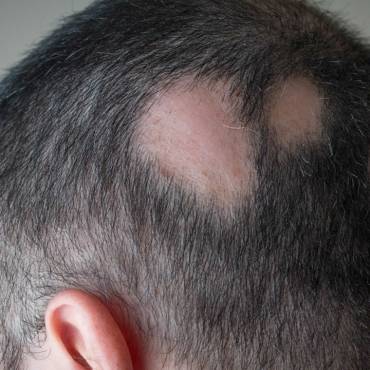Hair loss has become another consequence of COVID 19 as patients are dealing with symptoms for a longer duration. This is a new finding that is picking grip among the medical community.
New information has kept on emerging about the coronavirus almost weekly since the pandemic introduced earlier this year as scientists and health care experts continue to analyse the virus to understand the pharmacology of the virus. The novel coronavirus causes multiple complications in patients. The infection is present with a wide variety of symptoms. The centres for disease control and prevention’s (CDC) states that COVID 19 symptoms may include, but are not limited to cough, fever or chills, fatigue, breathlessness, headaches, muscle, or body aches. Some newly discovered include sore throat, runny nose, congestion, nausea, vomiting, or diarrhoea, loss of taste or smell, among many other symptoms.
Furthermore, the CDC earlier revealed that COVID 19 infection had a wide range of symptoms reported from mild to severe illness. Several studies have shown that those who have recovered from the infectious disease had heart and lung problem. Now new reports suggest an unusual side effect- hair loss after recovering from the infection. These studies are based on the experiences of people suffering from long-term coronavirus symptoms. These recovered patients are known as long-haulers. The survey also revealed that long-haulers experienced hair loss more than nausea and congested nose -two symptoms largely identified by medial agencies like CDC.
Hair Loss- An all-new complication of COVID 19
Among a variety of other COVID 19 complications, one of the most shocking ones is hair loss. You may be wondering what may have been causing hair shedding in COVID 19 patients? Dermatologists and health care experts link hair loss with telogen effluvium a condition of temporary shedding of hair experienced by individuals, especially after a stressful event or trauma. Expert says in about 85 to 90% of patients, healthy hair grows in the anagen phase of growth of hair cycle. Otherwise, hair is in a resting phase or telogen phase. Normally, hair remains in the anagen phase for about two to four years, and then they shift to the telogen phase, where they tend to fall out and replaced by new ones. There is a medical condition called telogen effluvium; during this, more hair shifts into the resting phase, resulting in more shedding of hairs. Also, there are risk factors for this condition, and these include stress, physical trauma, extreme weight loss, major surgery, high fever, high fever, dietary changes, severe medical condition, hyperthyroidism, iron deficiency, hypothyroidism, sudden hormonal changes etc.
According to health experts and dermatologists, there has been a growing number of people reporting hair loss after recovering from COVID 19. However, hair loss is not surprising as a lot of people begin to lose hair a few months after getting sick or a stressful event. According to studies, people reported to lose hair in July, and they got the virus between April and May.
Usually, hair loss after a stressful life event is just a temporary one. And you may get rid of it once you recover from the trauma or the medical condition. Generally, health care experts recommend having proper nutrition which includes eating enough food containing iron and vitamin D. Sometimes; dermatologists may also advise taking hair loss supplements to restore hair health and reduce hair fall.
However, given the novel nature of the contagion, it is difficult to pinpoint one standalone reason for the hair loss. It can also be attributed to poor nutritional intake, owing to the messed up digestive system and loss of appetite in the patients. The virus also puts an immense amount of mental and physical stress on the body, which can again lead to a hair loss.
Also Read: Different ways to cure Baldness



